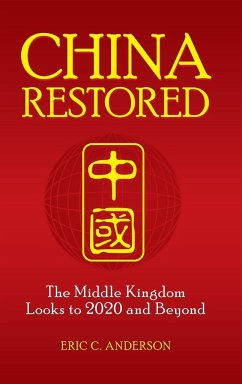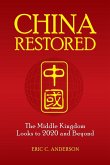Contrary to lurid forecasts in the West that China is on track to wrest global hegemony from the United States by 2025, China is in fact positioning itself to resume its historic role as the "Middle Kingdom"-a senior mentor with benign aspirations for guiding Asia into the mid-21st century. In China Restored: The Middle Kingdom Looks to 2020 and Beyond, Eric C. Anderson challenges the widespread perception of China as a rising giant whose authoritarian program to supplant the United States as global hegemony poses a grave international threat. He weighs in against doomsday prophets such as Martin Jacques, who predicts that China's economy and diplomatic influence will equal those of the United States by 2025 and will eclipse them by a factor of two by 2050. Anderson, a player in Washington's China policy debates who enjoys deep access to Chinese intelligence sources, counters with a careful argument that Beijing's overriding aim is in fact to foster a stable global environment conducive to its economic development and regional hegemony based on legitimate political authority rather than coercion. Anderson points to three principal factors that will drive Chinese behavior over the next 10 years: the Chinese Communist Party's desire to be recognized as a responsible member of the international community; China's effort to equip, train, and maintain a modern military; and Beijing's campaign to "sell" her governance model-from economic development to serving a domestic constituency-as a direct competitor to Washington's version of liberal democracy. Asserting that Beijing is poised to serve as Washington's "peer competitor," Anderson offers insights as to what can be expected from China in the future, including facilitating U.S. nuclear nonproliferation efforts and participating in international peacekeeping operations.
Hinweis: Dieser Artikel kann nur an eine deutsche Lieferadresse ausgeliefert werden.
Hinweis: Dieser Artikel kann nur an eine deutsche Lieferadresse ausgeliefert werden.








